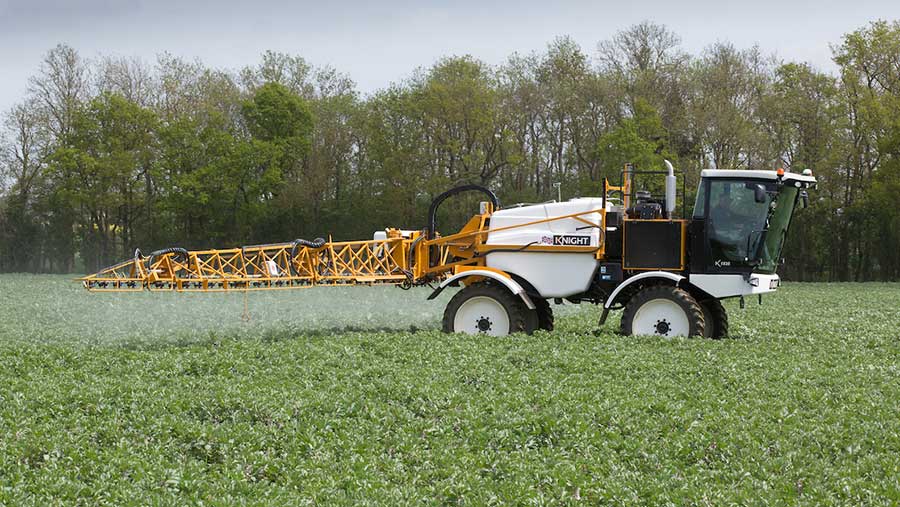MEPs reject plans to ban pesticides in ecological focus areas
 © Tim Scrivener
© Tim Scrivener EU Commission plans to ban the use of pesticides on peas and beans grown in ecological focus areas (EFAs) have been dealt a blow by MEPs on the European parliament’s agriculture committee.
The proposal was tabled in Brussels last February as part of a package of measures designed to simplify the so-called “greening” element of the Basic Payment Scheme (BPS).
In particular, the commission is seeking to prevent farmers from using plant protection products on some EFAs, including areas with catch crops, green cover or nitrogen-fixing crops.
See also: Brussels keen to press on with spray ban in EFAs
The commission argues that allowing the continued use of pesticides in such areas undermines the environmental aims of EFAs.
Their use has also encouraged farmers to opt for cultivation options within their EFAs, instead of doing things such as planting trees and hedges, digging ponds and ditches, or building stone walls.
Rejected
But the plans have been rejected by MEPs on the agriculture committee, who say they go way beyond a pure simplification.
They also highlight the ecological benefits of leguminous plants for soil protection and nitrogen fixation, and stress that any ban on plant protection products in EFAs would threaten protein production in Europe, which already depends on imports.
The MEPs also criticised the EU executive for bundling 14 different rules into one single package, limiting their ability to differentiate between the good and bad parts.
The move has been welcomed by farmer representatives
“Simplification of greening remains a priority for Scottish farmers,” said NFU Scotland’s combinable crops chairman Ian Sands.
“However, it is an indication of how damaging the proposals on plant protection products would have been that we had to call for rejection of the whole proposal as it stands.”
Compromise
The next step will involve a vote by the full European parliament in Strasbourg in mid-June.
If, as expected, the agriculture committee’s view prevails, then the onus will be on parliament, council and commission to establish a compromise.
This is likely to delay a final decision until way after farmers have determined their 2018 cropping plans.
“It is frustrating to report at this critical time that the greening rules for 2018 are still not fully known,” said NFU BPS expert Richard Wordsworth.
“It is not clear when a final decision will come. At this time, farmers will have to factor in the potential change to the rules into their greening/cropping plans for harvest 2018.”
One thing that does seem clear is that the area of land that farmers need to dedicate to EFAs will remain at 5% of the arable area for 2018.
The commission has also agreed to keep the minimum duration for land to lie fallow at six months, instead of raising it to nine months.

